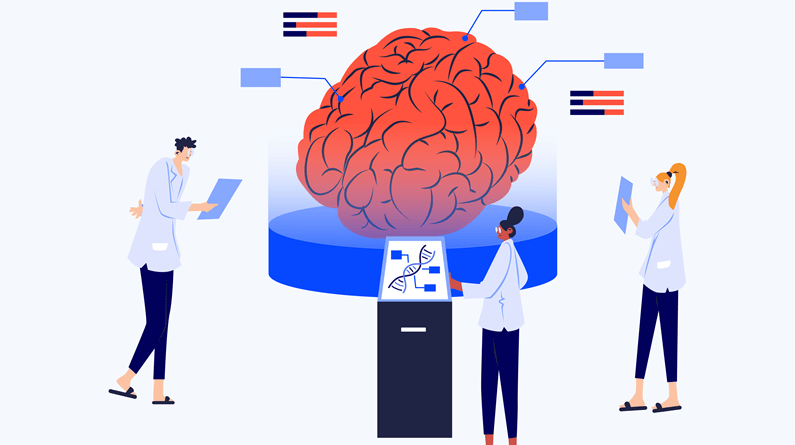Unlocking the Secrets of Brain Waves
Brain waves are electrical impulses that are produced by the brain’s neural activity. These impulses can be recorded using an electroencephalograph (EEG), which provides a graphical representation of brain wave patterns. Each type of brain wave is associated with different states of consciousness, cognitive functioning, and emotional experiences.
The Five Types of Brain Waves
There are five distinct types of brain waves, each with its own unique frequency and characteristics:
1. Delta Waves: The slowest brain waves, delta waves occur during deep sleep, meditation, or unconsciousness. They play a crucial role in healing, regeneration, and restoration.
2. Theta Waves: Theta waves are associated with light sleep, drowsiness, hypnosis, and relaxation. They’re also linked to daydreaming, vivid imagery, and working memory.
3. Alpha Waves: Alpha waves occur when we’re quiet, thoughtful, and relaxed. They enhance mental coordination, alertness, and calmness, and are often associated with mindfulness and meditation.
4. Beta Waves: Beta waves are the most common brain waves during wakefulness, particularly when we’re focused, attentive, and engaged in mental activities. They’re linked to problem-solving, decision-making, and cognitive processing.
5. Gamma Waves: Gamma waves are the fastest brain waves, associated with higher levels of consciousness, cognitive functioning, and emotional experiences. They’re linked to compassion, intelligence, memory, and happiness.
The Significance of Brain Waves
Brain waves play a crucial role in understanding human behavior, cognitive functioning, and emotional experiences. They can be used to:
– Diagnose neurological disorders, such as epilepsy and Alzheimer’s disease
– Understand mental health conditions, such as depression and anxiety
– Develop new treatments and therapies for neurological and mental health disorders
– Enhance cognitive functioning, memory, and emotional well-being
The Future of Brain Wave Research
Brain wave research is a rapidly evolving field, with new discoveries and applications emerging regularly. As we continue to unlock the secrets of brain waves, we may uncover new ways to improve human cognition, emotional well-being, and overall quality of life.
References:
https://www.goodtherapy.org/blog/psychpedia/brain-waves
https://www.matec-conferences.org/articles/matecconf/pdf/2018/69/matecconf_cscc2018_05012.pdf
http://neurofeedbackalliance.org/understanding-brain-waves/
https://www.tandfonline.com/doi/abs/10.1080/00029238.1965.11080645?journalCode=utnj18

